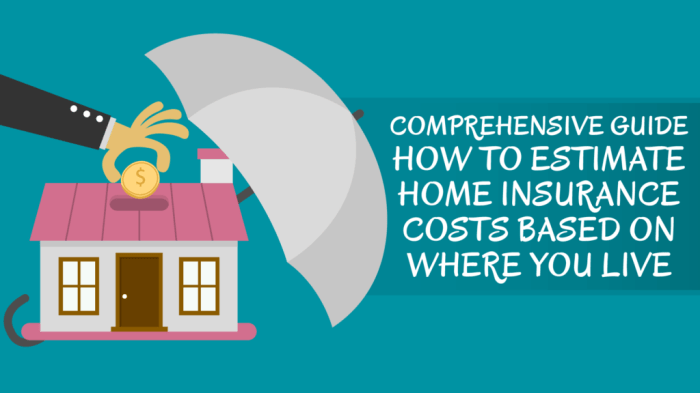Get home and car insurance quotes efficiently to secure the best coverage. Finding the right insurance can feel overwhelming, but with careful planning and comparison, you can find policies that meet your needs and budget. This process involves understanding your coverage requirements, comparing quotes from multiple insurers, and carefully reviewing policy details before making a decision. Taking the time to research and compare will ultimately save you money and ensure you have adequate protection.
Factors such as your driving history, vehicle type, location, and coverage preferences significantly influence the cost of your insurance. Online comparison tools can streamline the process, allowing you to input your information and receive multiple quotes simultaneously. Remember to carefully read the fine print of each policy to understand the coverage details, exclusions, and any potential limitations.
Securing the right home and car insurance can feel overwhelming. Navigating the complexities of coverage options, deductibles, and premiums requires careful consideration. This comprehensive guide will walk you through the process of obtaining home and car insurance quotes, empowering you to make informed decisions and find the best protection for your valuable assets.
Understanding Home Insurance Quotes
Home insurance protects your house and its contents from various perils, including fire, theft, and weather damage. Obtaining quotes involves providing detailed information about your property and your needs. The more accurate the information, the more precise the quote will be.

Source: quote.com
Factors Affecting Home Insurance Quotes
- Location: Your home’s location significantly impacts premiums. High-risk areas with frequent natural disasters or high crime rates will generally have higher premiums.
- Home Value: The replacement cost of your home is a key factor. Accurate valuation is crucial for adequate coverage.
- Coverage Amount: Choosing the right coverage amount is essential. Underinsurance can leave you financially vulnerable in the event of a significant loss.
- Deductible: A higher deductible means lower premiums but higher out-of-pocket expenses in case of a claim.
- Coverage Type: Different types of coverage exist, such as dwelling coverage, personal liability, and loss of use. Understanding these options is critical.
- Credit Score: In many jurisdictions, your credit score can influence your insurance premium. A higher credit score often translates to lower premiums.
- Security Features: Features like security systems, smoke detectors, and fire sprinklers can lower your premiums by demonstrating a reduced risk.
Where to Get Home Insurance Quotes
- Online Comparison Websites: Websites like NerdWallet, Policygenius, and The Zebra allow you to compare quotes from multiple insurers simultaneously.
- Independent Insurance Agents: These agents represent multiple insurance companies, offering a wide range of options and expert advice.
- Direct Insurance Companies: Companies like State Farm, Geico, and Allstate allow you to obtain quotes directly through their websites or by phone.
Understanding Car Insurance Quotes
Car insurance protects you financially in the event of an accident or damage to your vehicle. Similar to home insurance, obtaining accurate quotes requires providing detailed information about your vehicle and driving history.

Source: co.id
Factors Affecting Car Insurance Quotes
- Vehicle Type: The make, model, and year of your vehicle affect the cost of insurance. Sports cars and luxury vehicles typically have higher premiums.
- Driving History: Your driving record, including accidents, tickets, and claims, significantly impacts your premiums. A clean driving record will result in lower premiums.
- Location: Your location influences premiums due to factors like accident rates and theft rates.
- Coverage Type: Different coverage options exist, including liability, collision, comprehensive, and uninsured/underinsured motorist coverage.
- Age and Gender: Younger drivers and males often face higher premiums due to statistically higher risk.
- Annual Mileage: Drivers who commute longer distances generally pay more.
- Credit Score: Similar to home insurance, your credit score can impact your car insurance premiums.
Where to Get Car Insurance Quotes, Get home and car insurance quotes
- Online Comparison Websites: Utilize the same websites mentioned for home insurance to compare car insurance quotes.
- Independent Insurance Agents: These agents can help you find the best car insurance options based on your needs.
- Direct Insurance Companies: Obtain quotes directly from major insurance providers.
Bundling Home and Car Insurance: Get Home And Car Insurance Quotes
Many insurance companies offer discounts for bundling home and car insurance policies. Bundling can save you money by combining your policies under a single provider. This simplifies your insurance management and often leads to significant savings.
Tips for Getting the Best Quotes
- Shop Around: Compare quotes from multiple insurers to find the best rates and coverage.
- Review Your Coverage Needs: Determine the appropriate coverage levels for your home and car.
- Improve Your Credit Score: A higher credit score can lead to lower premiums.
- Maintain a Clean Driving Record: Safe driving habits can save you money on car insurance.
- Consider Discounts: Inquire about available discounts, such as bundling, safety features, and good driver discounts.
- Read the Fine Print: Carefully review policy details before making a decision.
Frequently Asked Questions (FAQ)
- Q: How often should I shop for home and car insurance?
A: It’s recommended to shop around annually or at least every two years to ensure you’re getting the best rates and coverage. Your circumstances may change, impacting your needs and premiums. - Q: What is a deductible?
A: A deductible is the amount you pay out-of-pocket before your insurance coverage kicks in. Higher deductibles generally result in lower premiums. - Q: What is liability coverage?
A: Liability coverage protects you financially if you’re at fault in an accident. It covers the other person’s injuries and property damage. - Q: What is comprehensive coverage?
A: Comprehensive coverage protects your vehicle from damage caused by events other than collisions, such as theft, vandalism, or natural disasters. - Q: Can I get quotes without providing my personal information?
A: While some websites offer preliminary quote estimates, you’ll typically need to provide some personal information to get a fully accurate quote.
Resources
Call to Action
Start comparing home and car insurance quotes today! Use the resources and tips provided in this guide to find the best coverage and rates for your needs. Don’t wait until it’s too late – protect your assets and your future.
Securing affordable and comprehensive home and car insurance is a crucial step in protecting your assets and financial well-being. By actively comparing quotes and understanding your insurance needs, you can confidently choose a policy that offers the right balance of coverage and cost-effectiveness. Remember that your insurance needs may evolve over time, so regular review and adjustments are recommended to ensure you maintain optimal protection.
Popular Questions
What factors affect my car insurance premiums?
Your driving record, age, location, vehicle type, and the coverage level you choose all influence your premiums.
How often should I review my insurance policies?
It’s advisable to review your policies annually, or whenever significant life changes occur (e.g., moving, getting married, buying a new car).
Can I bundle my home and car insurance?
Yes, many insurers offer discounts for bundling home and car insurance policies.
What is the difference between liability and comprehensive coverage?
Liability coverage protects you if you cause an accident, while comprehensive coverage protects your vehicle from damage not caused by accidents (e.g., theft, weather).
What documents do I need to get a quote?
Typically, you’ll need your driver’s license information, vehicle information (make, model, year), and address.
